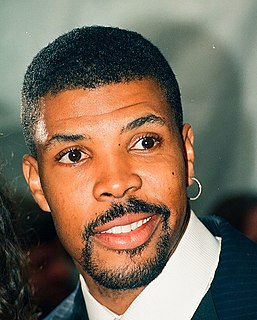A Quote by David Oyelowo
I have been in films before where people have been in a rush to label them as a Black film or even as a history lesson. These are ways to make the film feel niche and not for everyone.
Related Quotes
I wanted to make sure the focus [in The Land] was on human beings themselves and their decisions, but still connected to the urban environment that people associate as being black. I think I was able to make a film without commenting on "black this or black that" and you still feel the presence of it. There's no one character who's saying "we're all black and we're all in this struggle." It's that you just feel it. Some of that is because we get the sense from a lot of independent films that black people struggle all the time.
To me, a revolutionary film is not a film about a revolution. It has a lot more to do with the art form. It's a film that is revolting against the old established language of cinema that had been brainwashing the people for decades. It is a film that is trying to find ways to use sound and image differently.
I am aware that I have been incredibly fortunate in my life to work with the people that I have worked with and pursue the projects that I have been able to do. There are so many films that I have done that I really, as a film person, as a film fan, that I like. And that is a nice place to think of a career in.
'Crazy Rich Asians' has been compared to 'Black Panther,' but I feel like that's a false equivalency. The idea that there's only this film for Asians and that film for African Americans - it's so binary. I don't think it's like that at all. There should be and will be many films and many stories. Hopefully this just opens the floodgates.
'Toofan Singh' is a Punjabi film based on a terrorist. The Pahlaj led CBFC banned the film because according to them the film glorifies terrorism, and that might give a wrong message to today's youth. However, the film has been released in many countries, and has been received warmly. Unfortunately, it never saw the light of day in India.
There are so few roles out there. And even if it is a film that could be led by a black actress, how many times is that film going to get funded? Let's just be real. But it's not just black people. It's Asians, it's Hispanic people if you're not Salma Hayek. It's hard. It's hard to get films funded.
Before writing a single note of music, and even before the spotting session, I find it best to sit down with the director and just listen to him or her talk about the film - what they're trying to say, what they want the audience to understand or believe, and a thousand other similar questions. The director has most likely been living with the film for years before a composer is attached, and so the director's inclinations, desires, and understanding of the film are paramount.




































